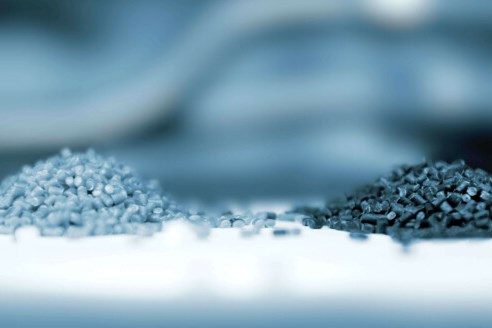Reactive Recycling Additives Gets Scientific Validation
Nexam’s patented technology demonstrates ‘remarkable’ capabilities in repairing polymers degraded during recycling cycles.

has announced the scientific validation of its breakthrough Reactive Recycling additives which are designed to revolutionize PP recycling. The company’s patented technology demonstrates ‘remarkable’ capabilities in repairing polymers degraded during subsequent recycling cycles, thereby addressing a critical challenge in the plastics industry, and enabling sustainable and efficient recycling processes.
The efficacy of Nexam Chemical's additive was rigorously evaluated in a recent scientific study published in the journal “Polymer Degradation and Stability.” Conducted by researchers from the Department of Applied Science and Technology at Politecnico di Torino, Italy, the study investigated the impact of thermomechanical degradation on PP microstructure during multiple extrusion cycles. Results demonstrated that the introduction of Nexam Chemical's additive effectively prevented the decrease in molecular weight of reprocessed PP, while also inducing favorable melt structuring phenomena.
Already commercially available under the brand name Reactive Recycling, these additives present a versatile solution for both postindustrial(PIR) and postconsumer (PCR) mechanical recycling processes. By preserving the integrity of recycled PP, these additives open new possibilities for waste valorization and the creation of high-quality recycled products. Says Dr. Alberto Frache, corresponding author of the study, "Our research indicates that Nexam Chemical's additive offers a promising pathway for achieving recycled PP with modulable flow characteristics and enhanced processability. This advancement holds significant implications for the circular economy, promoting sustainable practices and resource efficiency."
Related Content
-
Polymer Science for Those Who Work With Plastics: Why Entanglements — Not Just Molecular Weight — Drive Plastic Performance
Ever try running your fingers through tangled hair? Yeah … that’s not fun, but that’s what happens at the molecular level when polymer chains reach the right length. They wrap around each other, intertwine and … get stuck — and those tangles are the real reason plastics perform the way they do.
-
Let's Take a Journey into the World of Molding Thermosets – Part 1
There are many fundamental differences between thermosets and thermoplastics, from the way raw materials are furnished to the molder and the process in which parts are molded.
-
Prices Up for PE, ABS, PC, Nylons 6 and 66; Down for PP, PET and Flat for PS and PVC
Second quarter started with price hikes in PE and the four volume engineering resins, but relatively stable pricing was largely expected by the quarter’s end.



